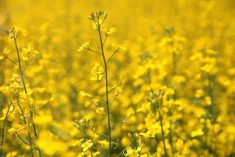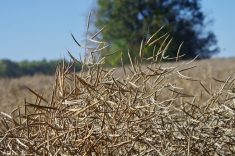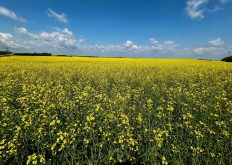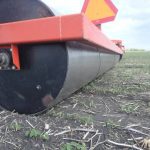The federal Advance Payments Program’s loan limits and interest-free portions will be raised and the deadline for AgriStability enrolment extended in a bid to help Canadian canola growers with cash flow.
Agriculture Minister Marie-Claude Bibeau and International Trade Diversification Minister Jim Carr on Wednesday announced the expansions and extensions along with plans to engage other “high-potential” export markets for Canadian canola in the face of China’s ban on the product.
Bibeau said the government plans to amend the federal Agricultural Marketing Programs Regulations to temporarily increase APP loan limits for the 2019 crop year.
Read Also
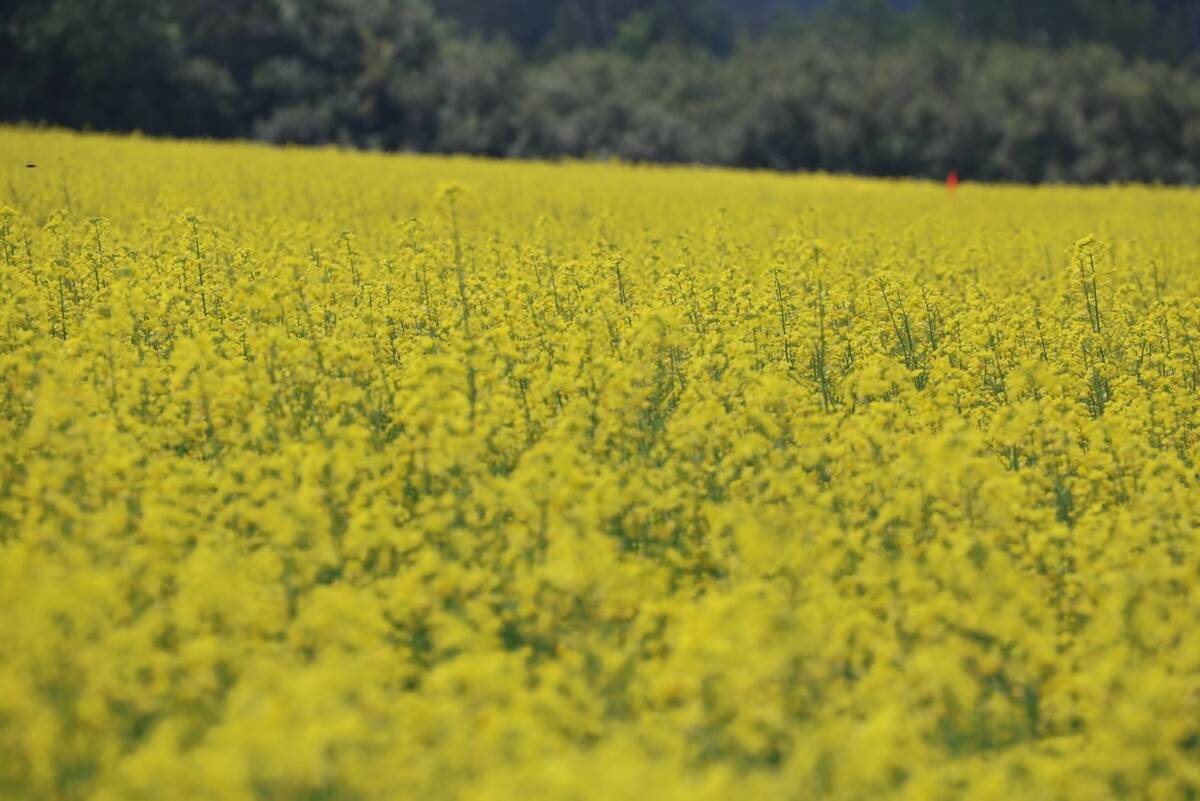
Speculative net long position grows in canola
Speculative fund traders have added to their recently established net long position in canola, according to the latest Commitments of Traders report from the United States Commodity Futures Trading Commission (CFTC) released Friday, Feb. 27.
The maximum allowable limit available under the APP will rise from $400,000 to $1 million and the program’s interest-free component for canola will rise from $100,000 to $500,000, until “market conditions stabilize,” according to the Canadian Canola Growers Association, an APP administrator.
The APP’s interest-free component will remain at $100,000 for all other eligible commodities.
“We are ensuring that farmers have the security they need leading into this year’s season to help manage their cash flow, giving them the flexibility to sell their canola at the best time and at the best price,” Bibeau said.
The CCGA said Wednesday it’s working with Agriculture and Agri-Food Canada program staff to incorporate the changes. CCGA has been issuing APP advances for the 2019-20 crop year since April 1.
“We’re already working on the necessary changes to our systems so that farmers can access these benefits quickly,” CCGA CEO Rick White said in a separate release.
White said he expects CCGA “will be in a position to process applications at the new limits in the near future.” Farmers will be able to find updates on the CCGA website or contact the association at 1-866-745-2256.
“With cash flow being farmers’ most immediate concern, we welcome enhancements that will help build financial predictability for at least the short to medium term,” CCGA president Bernie McClean said in the same release.
The Western Canadian Wheat Growers, in a separate statement Wednesday, contended that changes to the APP “may help short-term cash flow for some farmers, but to be eligible for $1 million advance on canola where $500,000 is interest free, you have to produce approximately 200,000 bushels of canola.
“In order to qualify for the maximum, you need 5,263 acres at 38 bushels per acre, which is roughly a 16,000-acre farm.”
‘More farmers can join’
Bibeau on Wednesday also announced a two-month extension to the federal-provincial AgriStability program’s enrolment deadline for the 2019 year without penalty, moving the deadline from April 30 to July 2, 2019.
Farmers enrolled in the farm income stabilization program “may receive support should they experience a large margin decline,” the government said.
As of April 21 this year, about 51,000 Canadian producers were enrolled in AgriStability for its 2017 program year, the last year for which data is available. “Extending the enrolment deadline means more farmers can join and benefit from government support in times of need,” Bibeau said.
“This exceptional step agreed to by (federal, provincial and territorial) governments will enable the program to help more farmers manage the impact of current market disruptions and production challenges facing many farm operations,” the government said.
Bibeau noted Wednesday she will also attend the G20 agriculture ministers’ meeting in Niigata, Japan on May 11-12, where she “will meet with Japanese industry leaders and officials from several countries to advance Canada’s agricultural trade.”
Carr said Wednesday he will lead a canola trade mission in early June to Japan and South Korea, which the government said “will build on his work to engage other high-potential countries” including the United Arab Emirates, Thailand, Malaysia, Pakistan, Bangladesh, Mexico, Germany and France.
Carr, speaking Wednesday in Ottawa, said he will also promote Canadian canola at upcoming OECD meetings in France and APEC ministerial meetings in Chile.
Bibeau, at the same presentation, also noted trade uncertainty adds to the “many different pressures that can affect (farmers’) mental health” and said work is underway with organizations such as Farm Credit Canada “to provide greater access to supports and services to help farmers experiencing mental health challenges.”
‘Regaining access’
China has been effectively off-limits to Canadian canola seed exports since March. Alleging quality and pest issues, China has suspended the canola export licenses of two major Canadian grain companies, Richardson International and Viterra, and Chinese buyers “remain unwilling” to purchase Canadian canola seed otherwise, the Canola Council of Canada said Wednesday.
“While technical discussions have taken place between the Chinese and Canadian governments, the scientific basis for China’s actions remain unclear,” the council said.
Canada-China relations took a turn for the worse back in December when Canadian officials arrested Meng Wanzhou, chief financial officer for Chinese tech company Huawei, in Vancouver.
Meng, who remains in Vancouver under house arrest, was detained at the request of the U.S. government, which seeks her extradition on fraud charges relating to alleged violation of U.S. sanctions against Iran.
The Canola Council on Wednesday hailed Ottawa’s moves on the APP and AgriStability, and to expand canola markets elsewhere in Asia, but also said “regaining access to the Chinese market remains a priority.”
“We need to consider all options to resume seed exports to China,” council president Jim Everson said in a separate release. “Predictable, rules-based trade is critical to Canadian agriculture and China remains an important market.”
China until now has accounted for about 40 per cent of Canada’s canola seed, oil and meal exports, the council said, with canola seed exports to China in 2018 alone valued at $2.7 billion. Demand “has been very strong until recent disruptions,” the council added.
Bill Campbell, president of Manitoba farm group Keystone Agricultural Producers, said “there has already been a $1.30 per-bushel loss on the crop, and that means a $160 million loss to Manitoba farmers which will drastically affect our provincial economy.”
Many farmers still have the 2018 crop in their bins, “and now with the rock-bottom prices some stand to lose $50,000 or more,” KAP said Wednesday in a separate release. “If the dispute is not solved before the 2019 harvest, the same fate awaits this year’s crop.”
Federal Conservative leader Andrew Scheer, in a separate statement Wednesday, said the party “support(s) increasing emergency financial aid for producers,” but also said it’s “unfortunate that it has taken months of public outcry from premiers, the leader of the official opposition, and canola farmers for the prime minister to take any action.”
Scheer also urged the Liberal government to appoint an ambassador to China and to launch a formal trade complaint against China at the World Trade Organization. Canada has been without an official ambassador to China since Prime Minister Justin Trudeau asked John McCallum to resign in late January.
Asked Wednesday about pursuing potential “hardball” tactics on trade with China, Carr said there’s agreement “across the sector, across provincial governments and across producers” that Ottawa should instead “engage China on the basis of their allegations.” — Glacier FarmMedia Network




